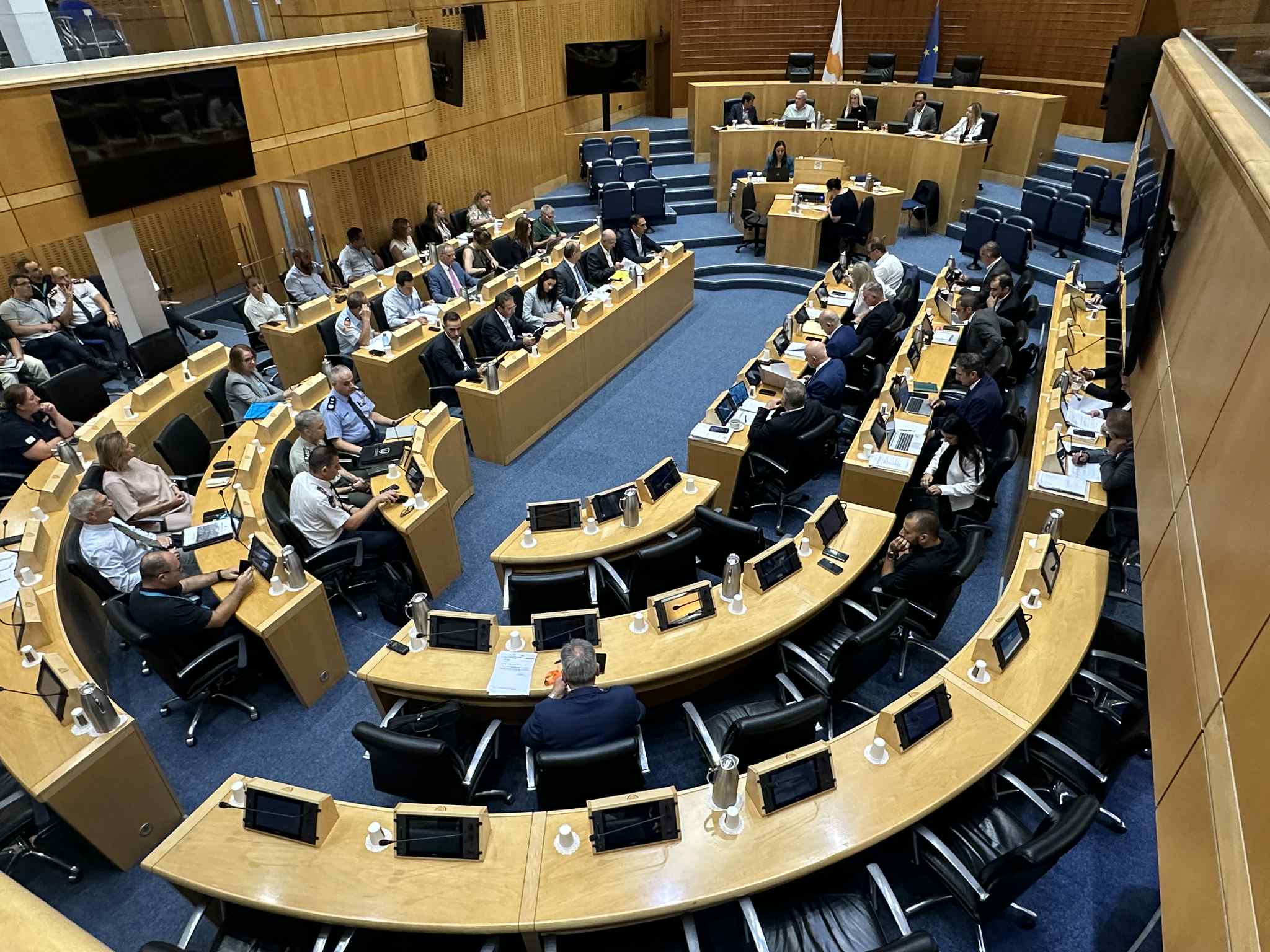Interior Minister Constantinos Ioannou spoke of “unprecedented weather conditions” which exacerbated the wildfire which tore through the Limassol district and killed two people last month.
Addressing a joint session of the House agriculture, environment, and interior committees held in light of the fire, he said the hot and dry weather experienced at the time is “proof of the impact of rapid climate change, which is no longer a distant scenario, but a reality”.
“The high temperatures, combined with the prolonged drought due to the lack of rain, and the strong winds which blew in the area, created an unprecedented and extremely dangerous situation, which proved difficult to manage,” he said.
He pointed out that at the previous joint session, which was held earlier this month, national guard chief George Tsitsikostas had explained that previous fires “had burned at a rate of 2.2 acres of land per hour”, but that last month’s fire burned at a rate of 10 acres per hour – four and a half times the typical rate.
He added that the findings of both the United States’ Bureau of Alcohol, Tobacco, Firearms and Explosives (ATF) and of local experts “accurately reflect the difficult conditions on the ground, which were difficult to deal with”.
This was the case, he said, “despite the fact that in the last two years, we had taken a series of important actions to improve and reinforce ourselves in a timely manner for better preparation, both in terms of manpower and in terms of aircraft, and in other matters”.
He then pointed out that there are currently 916 people employed as firefighters in the Republic of Cyprus, of whom 177 work for the fire brigade and 705 work for the forestry department, with there having only been 590 forestry department firefighters employed in the summer of 2022.
“We also have the largest fleet of ground-based forest firefighting vehicles, as well as the largest number of aircraft we have had. Suffice to say that for the first time, we have 11 aircraft at our disposal, compared to the seven we had in 2022,” he said.
He added that responsibility for those aircraft had been transferred to the national guard “so that it can be better managed.
“There is no doubt that we must strengthen ourselves even more to protect ourselves against natural disasters and crises of this magnitude, which, due to climate change, are becoming a more frequent phenomenon in Cyprus, but also in other countries, especially in the Mediterranean,” he said.
Then, he moved onto the matter of support measures provided by the government to people and businesses which were impacted by the fire, saying that the government “has proceeded very quickly and without unnecessary bureaucratic procedures in recording the damage and granting financial support”.
This, he said, was done “so that the properties which were affected can be restored and so people can return to their daily lives”.
“The support for our fire-stricken fellow people is being provided holistically, quickly, and fully, in contrast to previous cases of similar disasters wherein restoration efforts were only partial and were time-consuming,” he said.
In specifics, he said that a total of €2.2 million has been provided thus far to 279 families which were impacted by the fire, and that seven cases are at present pending, “for which the beneficiaries are required to provide information for the amounts to be paid.
He added that the civil defence arranged temporary accommodation for 348 people who were impacted by the fire, and that at present, 58 people remain in temporary accommodation.
Of those 58 people, he said 23 have made arrangements to leave “within days”, while for the remainder, “they will remain in temporary accommodation until housing is found.
He added that a total of 706 properties were affected, of which 335 were completely destroyed, and that the scientific and technical chamber (Etek) is “carrying out a cost assessment of the damage at current market prices”.
Looking ahead, he said that the government has “identified weaknesses” and that “our intention is to make the changes needed to improve the mechanisms, so that we are better protected against large-scale natural disasters”.
One such weakness, he said, is a “lack of a defined procedure for evacuating campsites”.
He said a letter has been sent to the education ministry with the aim of “modifying the procedure so that the civil defence is informed in advance by organisers of camps about the dates, the number of participants, and health and safety plans” related to any and all camping expeditions.
“In addition, it was requested that arrangements be made to secure vehicles to transport campers in the event of an emergency evacuation,” he said.
He added that a new letter was also sent to village councils, containing the provisions of the ‘Polyvios plan’, which concerns disaster evacuations, with a new round of on-site trainings and briefings to be carried out by the civil defence for village councillors to better inform them about the process.
This, he said, will allow village councillors to be better informed about the plan itself, the process of activating it, where to gather residents in the event of a disaster, and evacuation routes, among other things.
He said that additionally, village councils were asked to update the contact details of residents and holiday home owners within their villages, “so that if there is a need for evacuation, the council can send mass messages to people’s mobile phones with the first instructions”.






Click here to change your cookie preferences